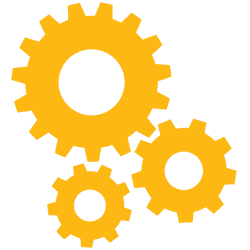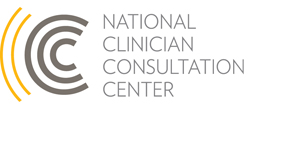
Harm reduction is an approach to healthcare that focuses on reducing the negative consequences of certain behaviors, such as drug use or sexual activity, rather than solely emphasizing complete abstinence from these behaviors. The goal of harm reduction is to minimize the negative consequences associated with these behaviors, such as the spread of disease, injury, or overdose, while recognizing that some individuals may continue to engage in these activities despite efforts to discourage them.
Healthcare providers who adopt a harm reduction approach prioritize the health and well-being of their patients by providing education and access to resources that can help minimize the likelihood of experiencing the negative consequences associated with certain behaviors. This may include providing clean needles and safe injection sites for people who use drugs, offering condoms, access to HIV testing and PrEP for those engaging in condomless sexual behavior, or offering medication-assisted treatment for individuals struggling with addiction.
Harm reduction approaches are evidence-based and grounded in public health principles and are designed to meet people where they are in their journey towards better health, without judgment or shame. By adopting harm reduction principles, healthcare providers can help reduce the negative consequences of high-risk behaviors and promote the overall health and well-being of their patients.
General Harm Reduction Resources
- Advancing Health Equity: A Guide to Language, Narrative and Concepts
(Guide on Language, Narrative, and Concepts provides guidance and promotes a deeper understanding of equity-focused, person-first language and why it matters.)
 Open Link | From American Medical Association (AMA) and Association of American Medical Colleges (AAMC) Center for Health Justice
Open Link | From American Medical Association (AMA) and Association of American Medical Colleges (AAMC) Center for Health Justice
- Words Matter – Terms to Use and Avoid When Talking About Addiction
(Terms for healthcare providers to avoid to reduce stigma and negative bias when discussing addiction)
 Open Link | From National Institute on Drug Abuse (NIDA)
Open Link | From National Institute on Drug Abuse (NIDA)
- Harm Reduction Coalition
(Fact sheet on ways people use drugs and tips for safer injection)
 Open Link | From National Harm Reduction Coalition
Open Link | From National Harm Reduction Coalition
(Fact sheet on sex work and harm reduction interventions)
 Open Link | From National Harm Reduction Coalition
Open Link | From National Harm Reduction Coalition
- 13 Principles for Health Care Providers to Interrupt Criminalization, Beyond Do No Harm
(Guide to help healthcare providers curious or concerned about criminalization in the context of access to healthcare, to explore and reflect on the Beyond Do No Harm principles, and to inspire collective action to prevent and interrupt criminalization of people seeking care.)
 Open Link | From Interrupting Criminalization (IC)
Open Link | From Interrupting Criminalization (IC)
- Methadone Manifesto
 Open Link | From Methadone Monday Working Group at Urban Survivors Union Methadone Advocacy and Reform Team
Open Link | From Methadone Monday Working Group at Urban Survivors Union Methadone Advocacy and Reform Team
Harm Reduction Resources for Emergency Departments/Inpatient Settings
Please note: California-based patients and providers can call California Poison Control System directly for fast, free, expert help 24 hours a day, every day on managing an acute overdose at 1‑800‑222‑1222.
- California Bridge
(Tools and resources on a variety of harm reduction topics for healthcare providers working in ER/inpatient settings)
 Open Link | From CA Bridge
Open Link | From CA Bridge
- ACOG Informed Consent and Shared Decision Making in Obstetrics and Gynecology
(Principles and guidance on informed consent and shared decision making)
 Open Link | From The American College of Obstetricians and Gynecologists (ACOG)
Open Link | From The American College of Obstetricians and Gynecologists (ACOG)
- California Department of Health Care Services Naloxone Distribution Project
(Information for hospitals and emergency departments on how to access free naloxone)
 Open Link | From Department of Health Care Services, State of California
Open Link | From Department of Health Care Services, State of California
- Meeting People Where They Are: Implementing Hospital-Based Substance Use Harm Reduction
(Article on how to implement the provision of safer use supplies in hospital settings)
 Open Link | From Harm Reduction Journal, via National Library of Medicine
Open Link | From Harm Reduction Journal, via National Library of Medicine
Harm Reduction Resources for Outpatient Settings
- Implementing Substance Use Disorder (SUD) Services in HIV Care Settings Toolkit
(Toolkit of linked resources created for use by multidisciplinary healthcare team members to improve substance use disorder (SUD)-related health outcomes for people with HIV with SUD(s) in all stages of recovery to assist in full implementation of interventions ranging from the use of evidence-based SUD assessments, diagnosis, harm reducing education and resources, behavioral health services, and pharmacotherapy.)
 Open Link | From AIDS Education and Training Center, National Coordinating Resource Center (AETC NCRC)
Open Link | From AIDS Education and Training Center, National Coordinating Resource Center (AETC NCRC)
- Substance Use Harm Reduction in Medical Care
(Evidence-based guidelines on treatment of substance use and SUDs to increase the availability of treatment in general medical settings.)
 Open Link | From New York State Department of Health AIDS Institute
Open Link | From New York State Department of Health AIDS Institute
- AAPP Pharmacist Toolkit: Harm Reduction Strategies for People Who Inject Drugs
(The toolkit provides quick tips and guideline summaries on harm reduction including consequences of injection drug use, harm reduction services, stigma, and potential barriers.)
 Open Link | From American Association of Psychiatric Pharmacists (AAPP)
Open Link | From American Association of Psychiatric Pharmacists (AAPP)
- AAPP Pharmacist Toolkit: Methamphetamine Use Disorder
(This guide is intended to highlight both the evidence base available as well as strategies for clinical decision making used by expert clinicians. Must create free account on aapp.org before downloading.)
 Open Link | From American Association of Psychiatric Pharmacists (AAPP)
Open Link | From American Association of Psychiatric Pharmacists (AAPP)
- Academy of Perinatal Harm Reduction
(Trainings for healthcare providers on substance use and pregnancy)
 Open Link | From Academy of Perinatal Harm Reduction
Open Link | From Academy of Perinatal Harm Reduction
- Promoting SBIRT in Practice
(Validated tools to promote screening, brief intervention and referral to treatment for SUD)
 Open Link | From University of Missouri-Kansas City School of Nursing and Health Studies
Open Link | From University of Missouri-Kansas City School of Nursing and Health Studies
- Clinical Provider Quick Tips: Addressing Substance Use in Primary Care Settings
(A toolkit featuring brief videos and practical tools you can use to address patient stimulant and fentanyl use in primary care.)
 Open Link | From UCLA Integrated Substance Abuse Programs
Open Link | From UCLA Integrated Substance Abuse Programs
Harm Reduction Resources for Other Settings
- Justice Center: The Council of State Governments
(A toolkit for community responder programs)
 Open Link | From Justice Center, The Council of State Governments
Open Link | From Justice Center, The Council of State Governments
- National Harm Reduction Technical Assistance Center
(Centers for Disease Control and Prevention in collaboration with SAMHSA funded program that offers free technical assistance to programs implementing harm reduction services including syringe exchange programs, health depts, programs providing treatment, prevention and recovery from substance use disorder.)
 Open Link | From Centers for Disease Control (CDC) and Substance Abuse and Mental Health Services Administration (SAMHSA)
Open Link | From Centers for Disease Control (CDC) and Substance Abuse and Mental Health Services Administration (SAMHSA)
- Medication for Opioid Use Disorder in Jails and Prisons: A Planning and Implementation Toolkit
(Toolkit to help jails and prisons implement and expand access to medications for opioid use disorder, such as methadone and buprenorphine, for incarcerated people struggling with opioid dependence.)
 Open Link | From Vital Strategies and The National Council For Behavioral Health
Open Link | From Vital Strategies and The National Council For Behavioral Health
- Native Harm Reduction Toolkit
(A toolkit developed to empower Native communities, recognizing the need for Indigenized and decolonized approaches to public health overdose prevention interventions.)
 Open Link | From Arlene Brown, member of the Bishop Paiute Tribe and the National Harm Reduction Coalition (NHRC)
Open Link | From Arlene Brown, member of the Bishop Paiute Tribe and the National Harm Reduction Coalition (NHRC)
- Pregnancy and Substance Use: A Harm Reduction Toolkit
(A toolkit for pregnant and parenting people who use drugs, their loved ones, and their service providers to promote overall health and wellbeing.)
 Open Link | From the Academy of Perinatal Harm Reduction in collaboration with the National Harm Reduction Coalition (NHRC)
Open Link | From the Academy of Perinatal Harm Reduction in collaboration with the National Harm Reduction Coalition (NHRC)
Harm Reduction Locators
- NASEN: Harm Reduction Locations
(National directory of SSPs that are NASEN Buyers Club Members. The Buyers Club offers low-cost non-government prices for harm reduction supplies nationwide)
 Open Link | From North American Syringe Exchange Network (NASEN)
Open Link | From North American Syringe Exchange Network (NASEN)
- Directory of Syringe Services Programs in California
(Directory of syringe services programs (SSPs) in California)
 Open Link | From California Department of Public Health Office of AIDS
Open Link | From California Department of Public Health Office of AIDS
 University of California, San Francisco |
University of California, San Francisco |
